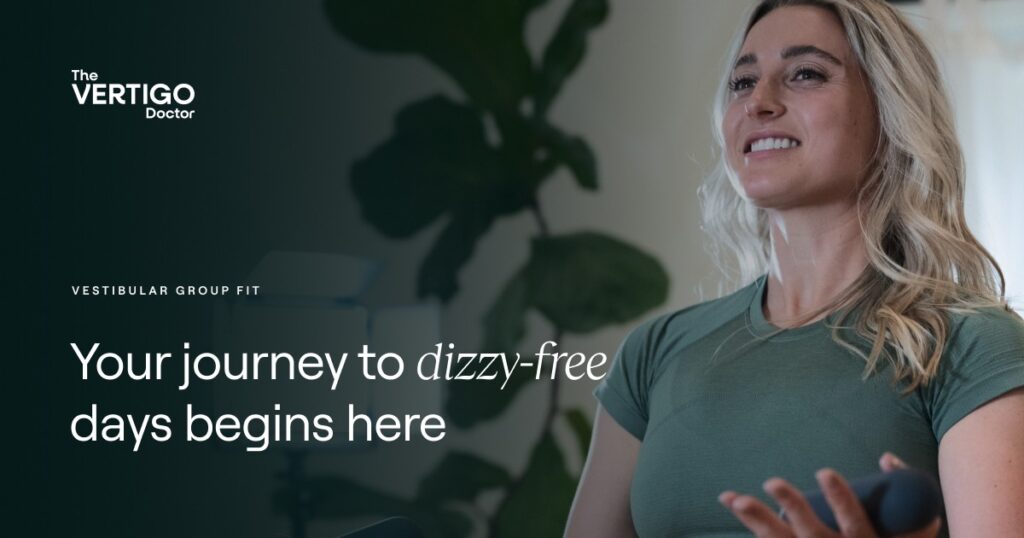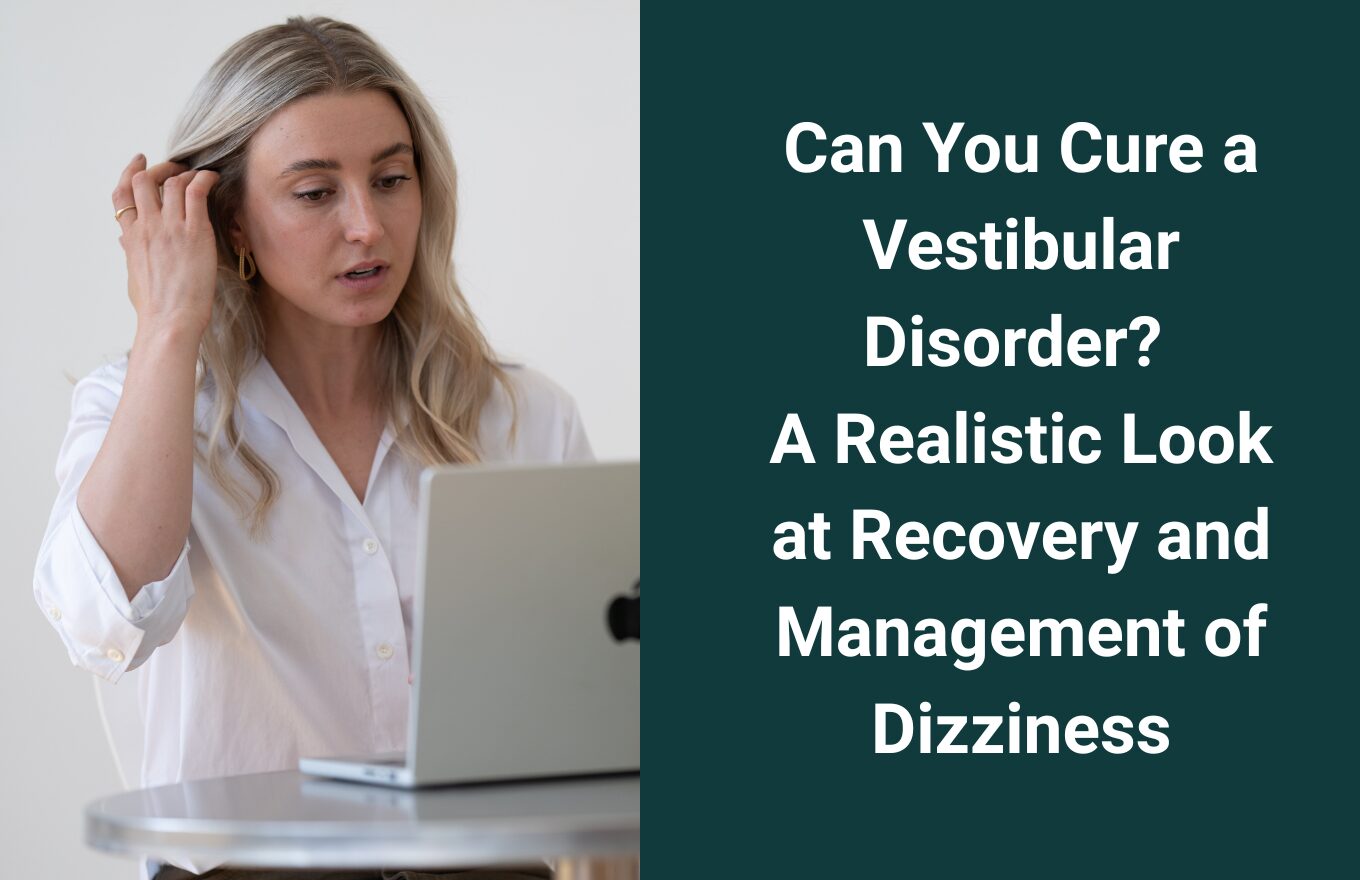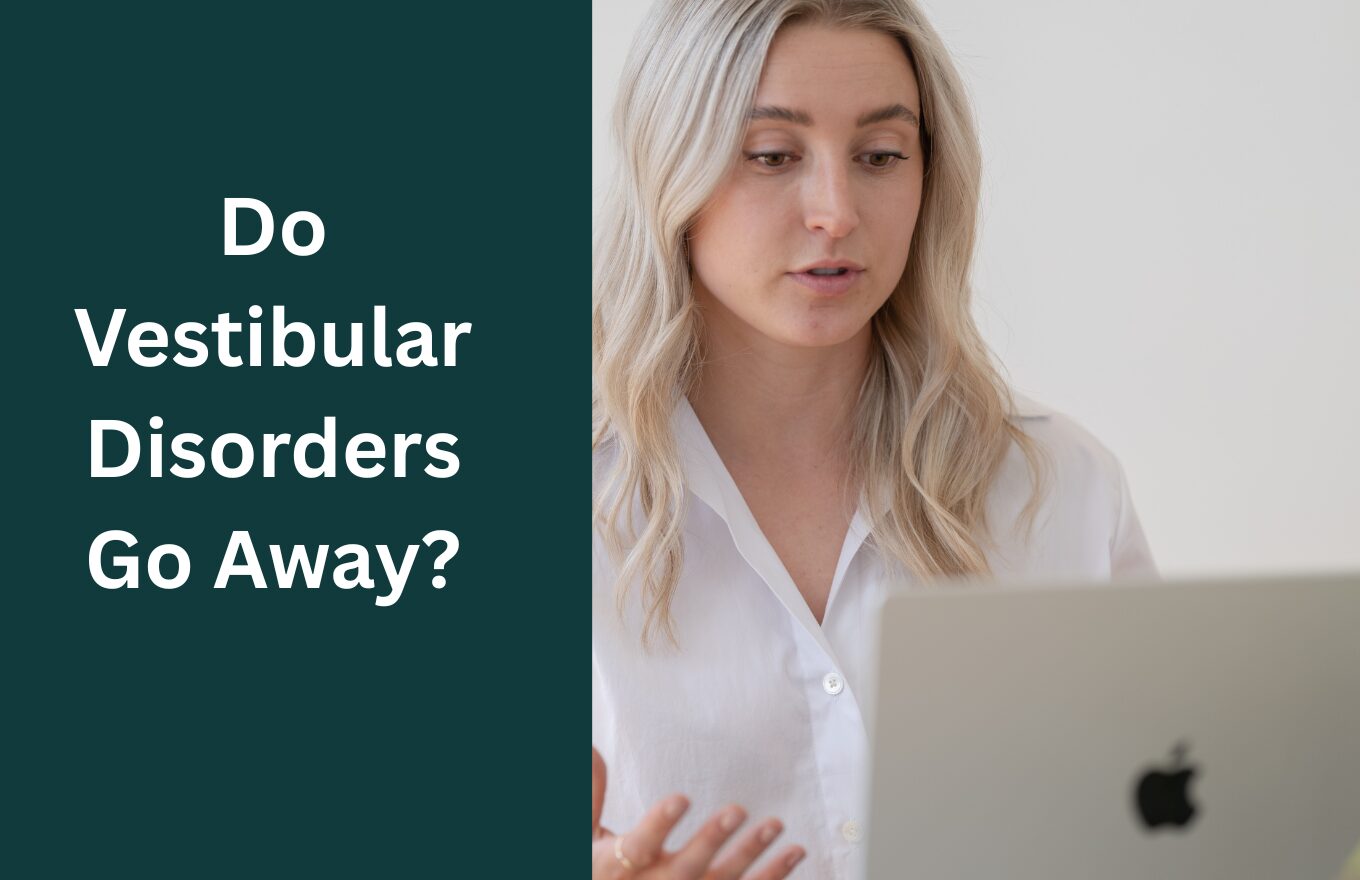If you’ve been diagnosed with a vestibular disorder, you may be wondering: Do vestibular disorders go away? This is one of the most common — and most complicated — questions people ask. The answer depends on the type of vestibular condition, the underlying cause, what treatment strategies are used, and so much more. In this blog post, we’ll break it all down so you can better understand what recovery looks like and what steps you can take to support your healing journey.
What Are Vestibular Disorders?
Vestibular disorders affect the inner ear and brain areas responsible for balance, coordination, and spatial orientation. Common types include:
- Benign Paroxysmal Positional Vertigo (BPPV)
- Vestibular Migraine
- Meniere’s Disease
- Labyrinthitis and Vestibular Neuritis
- Persistent Postural-Perceptual Dizziness (PPPD)
- and others!
Symptoms may include vertigo, dizziness, unsteadiness, nausea, visual disturbances, and cognitive fatigue. These symptoms can range from mild to completely debilitating.
Can Vestibular Disorders Go Away?
Some Vestibular Disorders Are Temporary
- BPPV is typically easily and quickly resolves with a maneuver called the Epley maneuver (or another canalith repositioning maneuver). Once the dislodged ear crystals are repositioned, symptoms may disappear completely. However, once you get BPPV once, there’s a 50% chance of recurrence within 3 years.
- Labyrinthitis or vestibular neuritis (usually caused by a virus) may resolve fully, especially with early treatment and vestibular rehabilitation therapy (VRT). Although the virus itself resolves fully, it will always leave you with a hypofunction. This simply means that your brain will rewire itself – through VRT and movement – so you won’t be dizzy! Although the symptoms are temporary for most people, the nerve dysfunction itself doesn’t ‘grow back’ your brain is simply smart enough to rewire itself to not notice – pretty amazon!!
Others Are Chronic But Manageable
- Vestibular migraine and Meniere’s disease may not “go away” entirely, but many people can significantly reduce their symptoms through lifestyle changes, medications, dietary adjustments, and stress management. This is called remission – because chronic conditions like these cannot be cured. Inflammation, movement, mindset, education, consistency, time and more are all going to be pieces of the puzzle here.
- PPPD is a functional disorder that can become chronic if untreated, but with proper care — including vestibular therapy, cognitive-behavioral strategies, somatic retraining, and more — many people experience long-term relief and remission. Again, remission here is the goal, rather than a cure, because we cannot ‘delete’ pathways in our brains, we can just rewire back to a less dizzy, or dizzy-free, state.
Some Require Surgical or Specialized Care
- Conditions like Superior Canal Dehiscence Syndrome (SCDS) typically don’t resolve without intervention. Surgical repair may be necessary for long-term symptom relief, but outcomes vary.
- Acoustic Neuroma (Vestibular Schwannoma) is similar where there are different ways to manage it, but often times surgical intervention is needed at some point or another.
Factors That Affect Recovery & Vestibular Disorders Going Away
Whether a vestibular disorder resolves or persists depends on:
- Mental health: Anxiety and fear of symptoms can perpetuate the dizziness cycle.
- Accurate diagnosis: Misdiagnosis is common and can delay recovery.
- Timely treatment: Early intervention improves chances of symptom resolution. But, even if you’ve lived with dizziness for 25+ years, it can still be managed! Listen to Geri’s story here!
- Vestibular rehabilitation therapy (VRT): This is often a game-changer for recovery. Everyone’s needs here are different, and honestly VRT may not be for everyone. Here’s a great podcast episode on the Patient’s Guide to VRT
- Lifestyle: Diet, sleep, stress, and screen use can impact healing. There’s so much more to lifestyle, and we shouldn’t ignore it. But, that’s a great start!
and sooooo much more!
Tips to Support Your Recovery
- Seek a specialist in vestibular disorders (ENT, neurologist, audiologist, or vestibular physical therapist). Often you’ll need multiple opinions, so we help coach you through all of this in Vestibular Group Fit.
- Address anxiety with somatic tracking, mindfulness, or therapy.
- Reduce inflammatory triggers: sugar, processed foods, alcohol, and mold exposure can worsen symptoms in some.
- Stay hopeful and patient. Progress may be slow, but it is possible. People do get better, frequently, with the right tools.
- Move your body regularly. Movement & exercise (I don’t mean VRT, here) are underrated and underutilized. But, the research shows us that when we exercise we are actually less dizzy, and have fewer migraine attacks, than people who don’t exercise.
We Are Here to Help Vestibular Disorders Go Away!
Some vestibular disorders resolve on their own. Others require treatment and long-term management. While not every condition is curable, most are manageable, and many people recover fully or experience long periods of remission. With a proper diagnosis, holistic treatment approach, and support from informed professionals, healing is not only possible — it’s likely.
If you’re looking for a supportive, expert-led space to help you regain confidence, reduce symptoms, and rebuild your life after a vestibular diagnosis, join us in Vestibular Group Fit.
This unique coaching program combines movement, education, nervous system retraining, and community — all designed specifically for people living with vestibular disorders. Whether you’re newly diagnosed or have been struggling for years, you’re not alone — and you can feel better.
👉 Click here to join Vestibular Group Fit and start your healing journey today.

Latest articles

Vestibular Symptoms: Master Common Symptoms of 5 Major Vestibular Disorders

Causes of Chronic Dizziness





